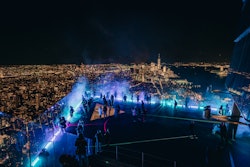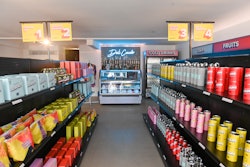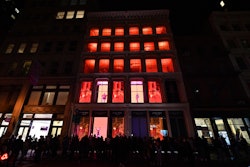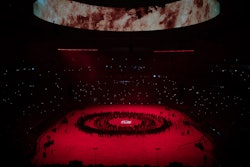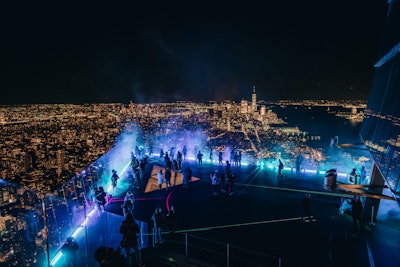
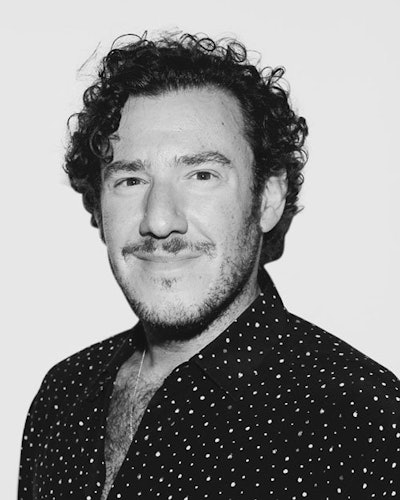 Bruce StarrPhoto: Courtesy of BMF
Bruce StarrPhoto: Courtesy of BMF
How they got their start: BMF's history can be traced back to an NYU dorm room in 2003, where Starr and Feit were students and friends with "a knack for disruptive marketing and confidence well beyond their years," Starr says.
Part of that confidence spurred from Feit's childhood, when he channeled his passion for music into writing letters to CEOs of record labels he admired—until Clive Davis, then the founder and president of Arista Records, asked him to join the team. Feit calls this "the start of a two decades journey that merged [his] passion for music with experiential marketing."
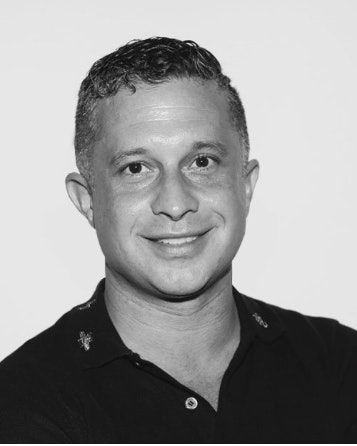 Brian FeitPhoto: Courtesy of BMF
Brian FeitPhoto: Courtesy of BMF
What innovation means to them: "Innovation means noticing the gaps, noticing the challenges, being creative, and taking measured risks to challenge the status quo," Feit says.
Starr adds that innovation is a carefully calibrated balance between reading the horizon and being forward-thinking—without losing sight of the basics.
"Emotional connection, tradition, and operational excellence must remain the bedrock. From there, innovation can be built on top—but only if the foundation is solid," he says. "As a society, we are getting so technology-driven, but we must remind ourselves to go back to the basics—how do we authentically engage people? Make them feel welcomed and looked after? Anticipate their needs and provide solutions ahead of time?"
How they stay inspired: To Starr, innovation comes from travel. He cites trips gorilla trekking in Rwanda, staying at the Belmond Cap Juluca in Anguilla, and exploring India, his favorite destination. To him, this global perspective informs and inspires his work. Feit, meanwhile, gets inspired "by surrounding myself with people who are ambitious and who have big ideas," he says.
Memorable moments: When asked for some career highlights, Feit goes back to 2006, when he says BMF "more or less pioneered the brand-activation music lounge concept. Teaming up with Calvin Klein Fragrances, we curated the CK One Music Lounge at Lollapalooza at Chicago’s Hard Rock Hotel," he remembers. "BMF also pioneered the concept of the brand-led festival lounge—equal parts daytime lounge, gifting bazaar, and after-hours parties hosted by DJs and bands."
One fun fact? In March 2008, Lady Gaga gave her first US performance at BMF-produced Armani Exchange Music Lounge on the Raleigh Hotel rooftop during the Winter Music Conference. 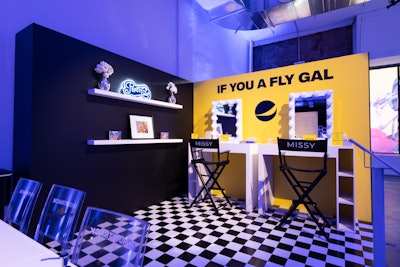 The BMF-produced Museum of Missy Elliott featured photo ops and stations inspired by her music videos.Photo: Courtesy of MTV
The BMF-produced Museum of Missy Elliott featured photo ops and stations inspired by her music videos.Photo: Courtesy of MTV
Many of Starr's fondest memories also involve the music industry, like in 2019 when BMF produced the Museum of Missy Elliott, an immersive music pop-up.
"That year, Missy was being recognized with an MTV VMA Video Vanguard Award, and our Museum of Missy Elliott allowed consumers to engage with some of her most iconic music videos over the years, driving buzz and awareness," Starr says. "Inspired by the icon herself, the BMF-produced, made-for-Instagram playground space shined light on MTV’s history and influence in connecting artists to audiences through its annual VMAs."
The museum comprised a number of interactive experiences, including a "Fly Gal" nail station, a Pepsi sampling bar, an on-theme lounge, and the opportunity to appear in “The Rain (Supa Dupa Fly)” in Missy’s famous costume as a hologram.
Their favorite thing about the experiential industry: "Experience goes hand in hand with emotional connection—those memories are ever-lasting," Starr says. "Being able to be a part of someone’s emotional journey is so special—an incredible meal, an incredible performance, that can stay with someone for the rest of their lives."
Feit adds that it's all about "being creative, having fun, and making noise," adding "I love that the experiential industry brings people together to create memories. We love creating moments that inspire people to share."
Back to the full list: 20 Experiential Experts Changing the Future of Consumer Events




